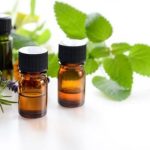Aromatherapy can be a powerful tool in promoting respiratory health, especially when it comes to clearing the lungs of mucus. The use of essential oils in aromatherapy has been a traditional practice for centuries, offering natural remedies for various ailments. When it comes to respiratory issues, certain essential oils have properties that can help break down mucus and provide relief from congestion.
Mucus build-up in the lungs can be caused by various factors such as infections, allergies, or environmental pollutants. This excess mucus can lead to symptoms like coughing, wheezing, and difficulty breathing. Understanding the science behind mucus build-up is crucial in finding effective ways to address this issue and improve lung function.
Essential oils like Eucalyptus, Peppermint, and Tea Tree are known for their decongestant and expectorant properties, making them excellent choices for clearing the lungs of mucus. These oils can help reduce inflammation, open up airways, and promote easier breathing. Incorporating these essential oils into your aromatherapy routine can provide relief from respiratory issues and support overall lung health.
The Science Behind Mucus Build-Up in the Lungs
The build-up of mucus in the lungs can be a bothersome symptom of various respiratory conditions, such as bronchitis, asthma, and the common cold. Mucus serves as a protective mechanism to trap pathogens and foreign particles, but an excessive amount can lead to breathing difficulties and discomfort. When mucus accumulates in the airways, it can cause coughing, wheezing, chest congestion, and overall respiratory distress.
One effective way to address mucus build-up in the lungs is through aromatherapy. Essential oils have been used for centuries to help alleviate respiratory issues and promote clearer breathing. Certain essential oils possess decongestant, expectorant, and antimicrobial properties that can help break down mucus, reduce inflammation in the respiratory tract, and support overall lung health.
Eucalyptus oil is particularly renowned for its ability to clear congestion in the chest and sinuses. It contains a compound called cineole that has been shown to have mucolytic effects, meaning it can break down mucus. Peppermint oil is another excellent choice for clearing lungs of mucus due to its cooling properties that can soothe the airways and promote easier breathing.
Tea tree oil’s antiseptic and expectorant properties make it beneficial for combating respiratory infections and promoting the expulsion of phlegm from the lungs. By incorporating these essential oils into your aromatherapy routine, you can effectively support your respiratory system and experience relief from mucus build-up.
| Essential Oils | Benefits |
|---|---|
| Eucalyptus Oil | Breaks down mucus and reduces inflammation in airways |
| Peppermint Oil | Soothes airways, promotes easier breathing |
| Tea Tree Oil | Antiseptic properties combat infections, helps expel phlegm from lungs |
Exploring the Role of Essential Oils in Aromatherapy for Lung Health
A key aspect of utilizing aromatherapy for lung health is understanding the role of essential oils in promoting respiratory well-being. Essential oils are volatile plant extracts that contain a myriad of therapeutic properties. When inhaled, these aromatic compounds can help soothe respiratory issues such as mucus build-up in the lungs. By harnessing the power of specific essential oils known for their decongestant and expectorant properties, individuals can support their lung health naturally.
Eucalyptus essential oil is renowned for its ability to clear the airways and promote easy breathing. The active compound in eucalyptus oil, cineole, has mucolytic properties that can break down mucus in the lungs, making it easier to expel. Peppermint essential oil is another valuable option for addressing respiratory concerns.
It contains menthol, a compound that provides a cooling sensation and helps alleviate congestion in the respiratory tract. Additionally, tea tree essential oil boasts antimicrobial properties that can support the immune system while simultaneously aiding in clearing mucus from the lungs.
When using essential oils for clearing lungs of mucus, it is important to choose high-quality products and use them safely and effectively. Inhalation methods such as steam inhalation or utilizing a diffuser are popular ways to experience the benefits of these powerful oils.
Diluting essential oils with a carrier oil before applying them topically can also help minimize any potential skin irritation. By incorporating these essential oils into your aromatherapy routine consistently, you can proactively support your respiratory health and enjoy clearer lungs free from excess mucus.
| Essential Oil | Main Benefits |
|---|---|
| Eucalyptus | Clears airways, breaks down mucus |
| Peppermint | Alleviates congestion, provides cooling sensation |
| Tea Tree | Supports immune system, aids in mucus clearance |
Top Essential Oils for Clearing Lungs of Mucus
Eucalyptus Oil
Eucalyptus oil is well-known for its ability to clear mucus from the lungs and improve respiratory function. This essential oil has anti-inflammatory and decongestant properties that can help alleviate symptoms of congestion, coughing, and chest tightness. Eucalyptus oil also contains compounds that have antimicrobial effects, making it effective in combating respiratory infections that may be causing mucus build-up in the lungs.
Peppermint Oil
Peppermint oil is another essential oil that can be beneficial for clearing mucus from the lungs. Its menthol component provides a cooling sensation that can help open up the airways, making it easier to breathe. Peppermint oil also has antispasmodic properties that can help reduce coughing and promote relaxation of the respiratory muscles. Using peppermint oil in aromatherapy or as a topical application can provide relief from mucus accumulation in the lungs.
Tea Tree Oil
Tea tree oil is renowned for its antibacterial and antiviral properties, which make it an excellent choice for treating respiratory conditions accompanied by excessive mucus production. Tea tree oil can help reduce inflammation in the airways, break down mucus, and support overall lung health. When used in aromatherapy or as part of a steam inhalation routine, tea tree oil can effectively assist in clearing the lungs of mucus and promoting better respiratory function.
Incorporating these top essential oils – eucalyptus, peppermint, and tea tree – into your aromatherapy practices can provide natural relief from mucus build-up in the lungs. Whether used individually or blended together, these essential oils offer a safe and effective way to support respiratory health and improve breathing comfort. Remember to always use essential oils with caution and moderation to avoid any potential adverse reactions.
How to Use Essential Oils Safely and Effectively for Respiratory Support
Aromatherapy is a popular complementary therapy that involves the use of essential oils to promote overall well-being, including respiratory health. When it comes to clearing the lungs of mucus, certain essential oils can be particularly beneficial. However, it is essential to use these oils safely and effectively to maximize their therapeutic benefits.
To incorporate essential oils for respiratory support, here are some key methods for using them safely:
- Inhalation: One of the most common ways to use essential oils for respiratory support is through inhalation. You can add a few drops of the oil to a bowl of hot water and inhale the steam, or use a diffuser to disperse the oil into the air.
- Topical Application: Some essential oils can be applied topically to the chest or back area to help clear mucus from the lungs. It is important to dilute the essential oil with a carrier oil before applying it directly to the skin.
- Internal Use (if safe): In some cases, certain essential oils may be safe for internal consumption when diluted properly. Always consult with a qualified aromatherapist or healthcare provider before ingesting any essential oil.
When using essential oils for clearing lungs of mucus, it is crucial to choose high-quality oils from reputable sources. Additionally, it is recommended to perform a patch test before using any new essential oil topically to ensure that you do not experience an allergic reaction.
By incorporating these safe and effective methods of using essential oils into your daily routine, you can harness the power of aromatherapy to support your lung health and promote overall well-being.
Other Aromatherapy Practices to Aid in Mucus Clearance
Aromatherapy offers a variety of practices beyond essential oil diffusion that can be beneficial for clearing mucus from the lungs. Two popular methods include steam inhalation and the use of diffusers to disperse essential oils into the air. Steam inhalation involves adding a few drops of essential oil to a bowl of hot water, covering your head with a towel, and inhaling the steam deeply. This method helps to loosen mucus in the respiratory tract and promote easier expulsion.
Moreover, utilizing diffusers in your home or workspace can provide consistent exposure to essential oils that support respiratory health. Diffusers work by breaking down essential oils into tiny molecules that can be easily inhaled. This method not only helps to clear mucus from the lungs but also creates a calming and uplifting atmosphere conducive to healing.
Choosing the Right Essential Oils for Steam Inhalation and Diffusers
When selecting essential oils for steam inhalation or diffuser use to aid in clearing mucus from the lungs, it is important to choose oils known for their expectorant and decongestant properties. Eucalyptus, peppermint, and tea tree are among the top choices due to their ability to help break down mucus and facilitate its removal from the respiratory system. These oils can also help reduce inflammation in the airways, making breathing easier during times of congestion.
Tips for Effective Use of Steam Inhalation and Diffusers
To optimize the benefits of steam inhalation, ensure that you are using pure essential oils rather than synthetic fragrances. Additionally, do not place your face too close to the hot water to avoid burning yourself. For diffuser use, follow manufacturer instructions on oil concentration and duration of operation.
It is recommended to use these practices regularly as part of your daily routine for lung health maintenance. By incorporating steam inhalation and diffusers into your aromatherapy regimen, you can enhance mucus clearance from your lungs and experience improved respiratory function over time.
Tips for Incorporating Aromatherapy Into Your Daily Routine for Lung Health
Aromatherapy can be a powerful tool in promoting lung health and clearing mucus from the respiratory system. Incorporating essential oils into your daily routine can help support healthy breathing and alleviate symptoms associated with mucus build-up in the lungs. One of the most effective ways to use aromatherapy for lung health is through inhalation, as the aromatic compounds in essential oils can directly target the respiratory system.
To incorporate aromatherapy into your daily routine for lung health, consider using a diffuser to disperse essential oil molecules throughout the air you breathe. This method allows for continuous exposure to the therapeutic properties of essential oils, such as eucalyptus, peppermint, and tea tree, which are known for their decongestant and expectorant qualities. Simply add a few drops of your chosen essential oil to a diffuser and let it run throughout the day to help clear mucus from your lungs.
In addition to using a diffuser, steam inhalation is another effective way to benefit from aromatherapy for respiratory support. Boil water in a pot, remove it from heat, add a few drops of essential oil (such as eucalyptus or peppermint), drape a towel over your head to create a tent over the pot, and inhale the steam deeply for about 10-15 minutes.
This practice can help loosen mucus in the lungs and make breathing easier. By incorporating these aromatherapy practices into your daily routine, you can experience improved lung function and overall respiratory health.
Precautions and Considerations When Using Aromatherapy for Respiratory Issues
When using aromatherapy for respiratory issues, it is essential to take certain precautions and considerations to ensure the safe and effective use of essential oils. Here are some important points to keep in mind:
1. Dilution: Essential oils are highly concentrated substances that can cause skin irritation or sensitization if applied directly. It is crucial to always dilute essential oils with a carrier oil before applying them to the skin. The recommended dilution ratio is typically 1-2 drops of essential oil per teaspoon of carrier oil.
2. Allergies: Some individuals may be allergic to certain essential oils, so it is important to perform a patch test before using any new oil. Apply a small amount of diluted oil to the inside of your forearm and wait 24 hours to check for any adverse reactions.
3. Quality of Oils: When purchasing essential oils for aromatherapy, make sure to choose high-quality, pure oils from reputable sources. Poor-quality or synthetic oils may not provide the same therapeutic benefits and could potentially contain harmful chemicals.
4. Pregnant Women and Children: Certain essential oils should be avoided during pregnancy or when used with young children due to their strong effects. Always consult with a healthcare provider or aromatherapist before using essential oils in these populations.
Remember that while aromatherapy can offer many benefits for lung health, it is not a replacement for medical treatment. If you have severe respiratory issues or persistent mucus congestion, it is important to seek advice from a healthcare professional for proper diagnosis and treatment. With proper precautions and considerations, aromatherapy can be a valuable tool in promoting clear lungs and overall respiratory well-being.
Conclusion
In conclusion, aromatherapy has proven to be a valuable natural remedy for clearing mucus from the lungs and improving respiratory health. The use of essential oils such as Eucalyptus, Peppermint, and Tea Tree can greatly aid in breaking down and expelling excess mucus, making breathing easier and more comfortable. By incorporating these oils into daily routines through methods like steam inhalation or diffusing, individuals can experience the benefits of aromatherapy for lung support.
It is important to remember that while aromatherapy can be beneficial for clearing lungs of mucus, it should be used safely and with caution. It is advisable to dilute essential oils properly before use and consult with a healthcare professional if you have any underlying respiratory conditions or concerns. Additionally, being aware of any potential allergies or sensitivities to certain oils is crucial in preventing adverse reactions.
Overall, embracing the healing power of aromatherapy for respiratory issues like mucus build-up in the lungs can provide a natural and soothing approach to improved lung health. By understanding the science behind mucus accumulation, exploring different essential oils known for their decongestant properties, and practicing safe usage techniques, individuals can effectively incorporate aromatherapy into their wellness routine for clearer airways and enhanced breathing comfort.
Aromatherapy truly offers a holistic approach to respiratory health that is worth considering for those seeking natural remedies for lung support.
Frequently Asked Questions
What Essential Oil Gets Rid of Phlegm?
Eucalyptus essential oil is known for its ability to help get rid of phlegm. It has decongestant properties that can help clear the respiratory passages, making it easier to expel mucus and reduce congestion.
What Is the Best Essential Oil to Clear Lungs?
The best essential oil for clearing lungs is peppermint oil. Peppermint has a refreshing and invigorating scent that can help open up the airways, making it easier to breathe deeply and clear out any congestion in the lungs.
What Can I Diffuse for Mucus?
For mucus relief, you can diffuse essential oils like tea tree, thyme, or lavender. These oils have antimicrobial properties that can help fight off infections while also soothing irritation in the respiratory tract, reducing excess mucus production.

Are you looking for a natural way to improve your health and wellbeing?
If so, aromatherapy may be the answer for you.





